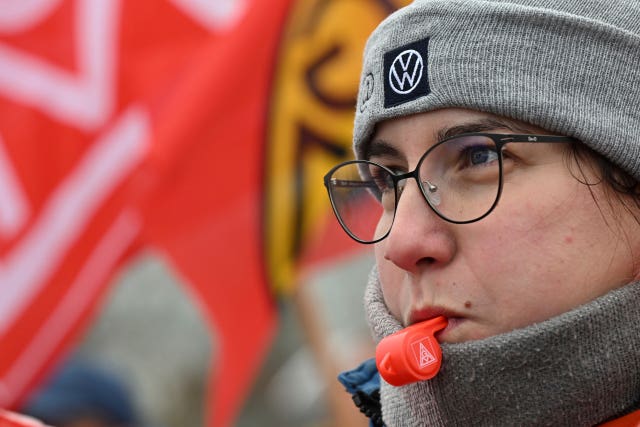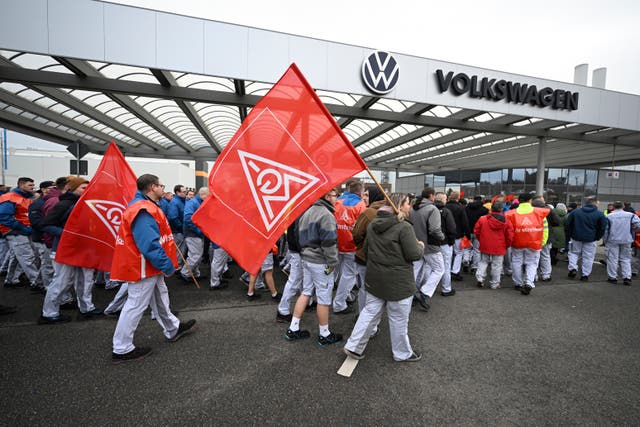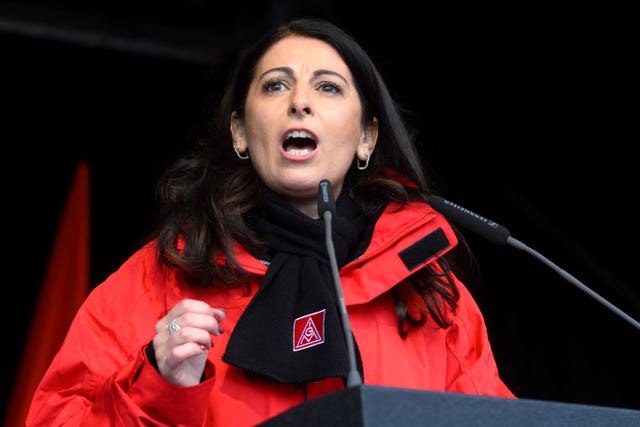Volkswagen workers have launched rolling two-hour strikes at nine factories across Germany to underline their resistance to pay cuts and factory closures the company says are necessary to cope with a slack European car market.
The stoppages included the company’s base plant at Wolfsburg, where workers are due to rally against a cost-cutting drive by the carmaker’s management in which they face the threat of Volkswagen’s first factory closures in its home country.
The so-called warning strikes, a common tactic in German wage negotiations, are taking place as part of talks for a new labour agreement after a mandatory peace period that bars strikes expired on Sunday.

The company is demanding a 10% pay cut for 120,000 German workers and has said it cannot avoid shedding factory capacity that is no longer needed. Employees’ representatives say the company has proposed closing three of its German plants.
Thorsten Groger, the regional leader of the IG Metall industrial union in Lower Saxony, where Volkswagen is headquartered, said that the company won’t be able to “overlook” the walkouts.
“If necessary, this will be one of the toughest conflicts Volkswagen has ever seen.”
The company has not publicly detailed its plans but is facing a drop in demand in Europe, higher costs and increasing competition from Chinese carmakers.

Since Volkswagen has a quarter of the market, that represents a loss of 500,000 cars a year.
For years, strong profits in China helped cover higher costs but the changing environment now means that “it’s high time to address this,” Mr Schaefer said.
Volkswagen argues that it must lower costs in Germany to levels achieved by competitors and by Volkswagen plants in eastern Europe and South America.

“We demand that all make their contribution – management and the shareholder side as well,” Cavallo said at the rally in Wolfsburg as employees drummed, whistled and clapped.
She said the next round of talks in a week’s time “is likely to set the course – rapprochement or escalation. We are ready for both.”

The next negotiations are slated for December 9.






